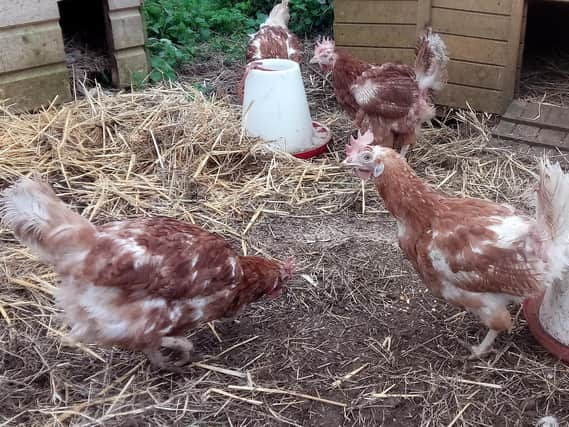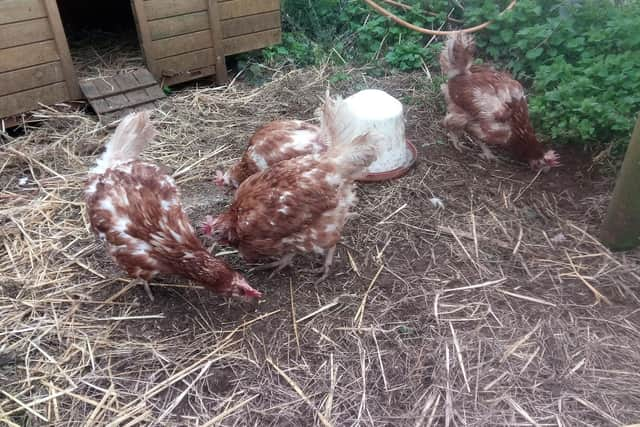Hundreds of 'caged' hens enjoy fresh air for the first time after Kineton re-homing


The distribution of the 18-month-old chickens was one of a number of such events, masterminded around the UK by the British Hen Welfare Trust (BHWT) which finds new homes to save the birds from slaughter at the end of their commercial egg-laying lives.
Nearly 250 of the former colony-cage hens were given to householders and smallholders living in Banburyshire when the trust set up a temporary re-homing centre at Cotswold Chickens near Kineton on Saturday.
Advertisement
Hide AdAdvertisement
Hide AdThe four birds in our picture went to a home in North Newington where they laid three eggs in the first 24 hours and have quickly settled to their new life.


Beth O'Sullivan of the BHWT said: "We re-homed 239 hens at Kineton but we had other centres passing hens on to new homes in Devon, Worcester, Cheshire, Milton Keynes, Cumbria, Monmouth, Northumberland and Derbyshire so 2,350 hens have a new chance of life rather than face slaughter for pet food or processed foods.
"All of them were colony-caged birds. Battery cages were banned in 2012. They were individual cages the size of an A4 piece of paper which gave the hens no space to do anything but eat and lay.
"Colony cages are slightly different. They are for 80 birds, but each has only an average of one A4 piece of paper, plus a postcard.
Advertisement
Hide AdAdvertisement
Hide Ad"There are 42m hens in commercial egg production each year and 13.5m of those are in colony cages. There are 26m free range hens, 1.6m organic hens and 1.3 in 'barn' laying conditions. We hold re-homings every six to eight weeks and we save thousands of hens every year.
"However because of the coronavirus emergency we have had to cancel all our rehomings in Scotland. We do have some planned this weekend for Berkeley in Gloucestershire, Lincolnshire, Lancashire and Cornwall.
"We are having to take it week by week so people should check on our website to see which ones are going ahead."
* Commercial hens such as colony-caged birds are culled after 18 months old, after what is said to be their optimum laying life in temperature and light-controlled conditions indoors. However hens can live until they are seven or more and continue laying, bigger and sometimes double-yolked eggs as they grow older.
* Liberated hens very quickly grow full feathers and revert to their instincts, which include scratching for food, perching and dust-bathing to protect their skin.